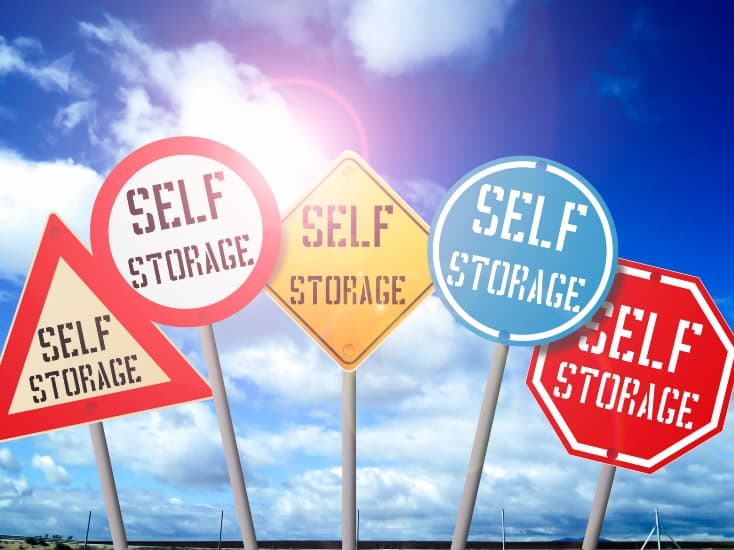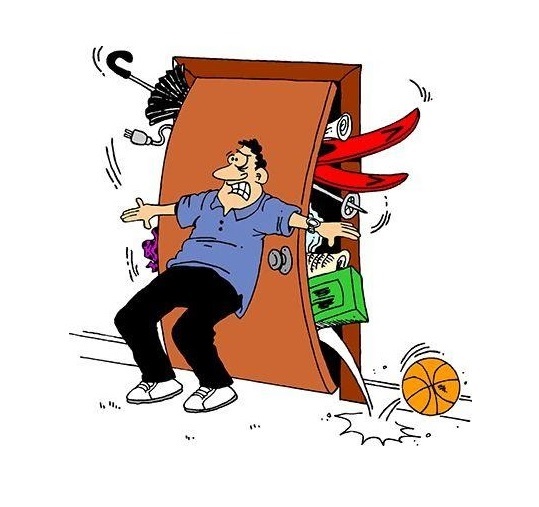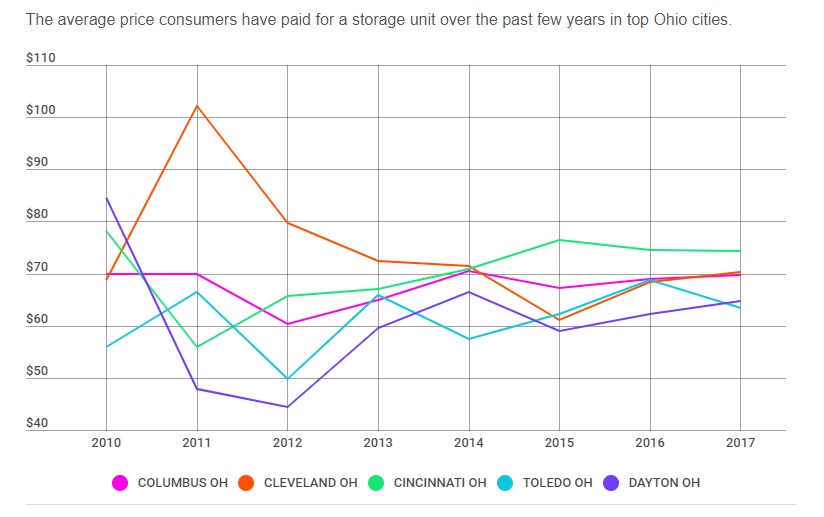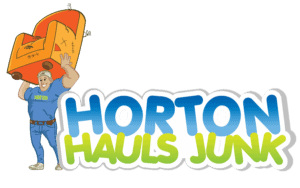Do You Own Your Stuff Or Does Your Stuff Own You?
By Derik Hicks
Did you know there are more self-storage facilities in America than McDonald’s restaurants? Yes, it’s true. There are over 49,000 self-storage facilities but less than 14,000 McDonalds. It seems like the only thing Americans love more than Big Macs is hoarding and storing.
Wait, what? America is stuffed with stuff. Reportedly the self-storage business makes more money than Hollywood.

It’s difficult to tell who the average customer of self-storage is because the age ranges from nineteen to ninety years old with income from zero dollars to millions of dollars.
One thing self-storage customers have in common–they all need space for their stuff.
People want to hold on to their things, and one of the major reasons they want to keep the items that they store is they’re usually going through some sort of life transition.
Perhaps it’s the birth of a baby, a new job in a new city, construction at their homes, etc. People want to keep their things to get to that next stage in life.
Another reason is that others just can’t stop clicking “Add to Cart” so the stuff keeps coming. Thank you, Amazon!
Eventually, you run out of room in your garage, home, or apartment and you need somewhere to keep all your precious stuff.

Is self-storage the solution?
For the minority of storage consumers, the answer is yes. But for the majority, the answer is a flat-out no. Therefore, the question the majority need to ask themselves is, “Do I own stuff or does my stuff own me?”
This is an important question to consider. Why? Self-storage can be expensive. In 2017, the average cost of a storage unit in Toledo, Ohio, was around $64.00 a month. (See Ohio Self-Storage Data Center | SpareFoot)

Take, for example, Natasha who lives in Fox Creek Apartments on North McCord Road. She rents out a self-storage unit nearby.
“It’s my hoarder paradise,” said Natasha. “I have a small apartment and this is my staging area. The idea is that I have a clean apartment, and I put all my extra stuff in my storage unit; my stuff from college, extra furniture, my summer clothes, my winter clothes, and my bike. One day I’ll go through it, throw it away, and move on.”
But Natasha admits, even if she moves into a larger home, she may never really throw any of it away.
“Is it excessive? Yeah, that’s why I joke that it’s my hoarder’s paradise. Like why do I have stuff if I’m not using it every day? I’m working on it, I guess. Isn’t that what it’s all about, consumerism, is just buying, buying, buying? Is that American? I don’t know.”
Originally Natasha only planned on renting the storage unit for three months. But it kind of gained momentum, and she stayed for much longer than she had originally planned.
Why do some people rent storage units for years?
Dr. Frank Page, Adjunct Assistant Professor at the University of Utah’s Department of Sociology, said, “We have a capitalist, consumer society. We’re inundated with advertising all day long and the advertisements say you need this, without this you’re inadequate with this; you’ll be more and you’ll be better. We buy these things and we become attached to them.”
Americans are motivated by the desire to have prestige and status. Owning stuff gives people a sense of security, which explains why in good times and in bad people rent storage units so they can hold on to their stuff.
“In a way, they’re a privilege of the rich, but they represent desperation on those people who are downwardly mobile,” said Dr. Page.
According to Page, the proliferation of storage units can be seen as an indicator of the well-being of our society.
“Our society behooves us to keep consuming. It says who you are is what you can consume and display, yet we don’t have the money and we have this period of downward mobility which has left a lot of people with this decision of what to do.”
What are you going to do?
If you and your family must always have what is “new” while keeping all that is “old,” the problem of storage will persist. On the other hand, if you identify what you really need and use proper storage, you can solve the problem.
Why not take the time and examine your storage unit?
Perhaps you can identify items that you really need versus items that you don’t.
If you would like to save yourself $60+ a month, why not get rid of the stuff that you don’t need? You can take the time to sell items online and make some extra cash or you can donate items that are in decent shape.
Or you can be like Natasha who didn’t have the mental energy and time to sort and empty her self-storage unit herself.
So, she contacted Horton Hauls Junk out of Toledo, Ohio. They came and removed all the stuff for her.
All she had to do was to point, and a professional team promptly removed all of her unneeded items.
The company donated many items to their various partners and recycled the recyclables. Everything else was disposed of responsibly.
The best part about it, the courteous workers cleaned up after they finished. With only a few items left, Natasha closed her self-storage unit account and saved herself over $916 a year. That’s a lot of moolah!
What are you going to do with all that extra money?

You, too, can kick the urge to keep up with the Jones while growing out of your home, garage, and basement.
Resist the desire to desperately hold on to your identity through stuff.
Avoid the practice of renting out spaces just to store items you don’t really need. Remember, you own stuff. It does not own you.
“It’s human nature to take the easy route and leap at storage methods that promise quick and convenient ways to remove visible clutter. Putting things away creates the illusion that the clutter problem has been solved. But sooner or later, all the storage units are full, and the room once again overflows with things.”—Marie Kondo






